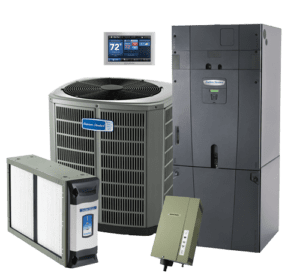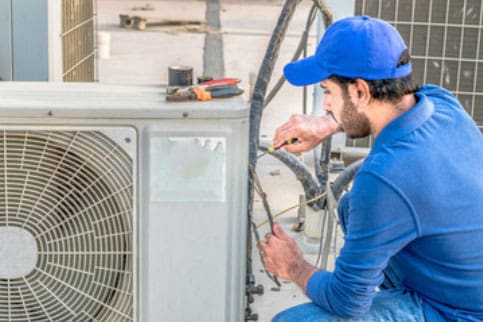
A Comprehensive Look at the Costs Involved with Furnace Repair in Tucson
When winter months arrive in Tucson, having a fully functional furnace is essential for comfort and safety. Unfortunately, as with any mechanical system, furnaces can experience breakdowns and malfunctions that necessitate repair. Understanding the costs involved in furnace repair can help homeowners budget effectively and avoid unexpected expenses. This exploration of furnace repair costs will delve into various factors that influence pricing, common issues faced by homeowners, and how to choose a reliable HVAC contractor.
Factors Influencing Furnace Repair Costs
Several elements play a significant role in determining how much you might pay for furnace repairs. The type of furnace you own is one of the primary factors—gas furnaces typically have different repair needs than electric ones. Gas furnaces tend to be more complex, often requiring specialized knowledge and tools for repairs. Consequently, they can sometimes incur higher labor charges.
Another critical factor is the age of your furnace. Older models may require parts that are harder to find or no longer manufactured, leading to increased costs. Furthermore, if your unit is outdated, it might make more sense financially to invest in a new system rather than continually repairing an inefficient model.
The time of year can also affect repair costs. During peak google.com heating seasons—generally from late fall through early spring—HVAC contractors may charge more due to high demand for their services. If you can wait until off-peak times for repairs, you might save significantly.
In addition to these considerations, the specific issue at hand heavily influences costs. Some problems are relatively minor and inexpensive to fix, while others could lead to extensive repairs or even necessitate a complete replacement.
Common Furnace Issues and Their Average Repair Costs
Being aware of common furnace issues can prepare homeowners for potential repairs and associated costs. Here are some frequent problems along with their average repair price ranges:
Thermostat Issues: A malfunctioning thermostat often leads to inconsistent heating. Replacing or recalibrating this component typically ranges from $100 to $300.
Dirty Filters: Clogged air filters restrict airflow, causing inefficiency and potentially leading to overheating or system shutdowns. Cleaning or replacing filters usually costs between $50 and $150.
Ignition Problems: For gas furnaces, ignition failures can prevent the unit from starting altogether. Repairing ignition systems generally falls within the $150 to $400 range.
Blower Motor Failure: If the blower motor stops working, it significantly affects airflow throughout your home. Replacement costs can vary but often range from $300 to $700.
Heat Exchanger Issues: A cracked heat exchanger poses serious safety risks due to carbon monoxide leaks and requires immediate attention; repair or replacement may cost anywhere from $500 to over $1,500 depending on severity.
While these estimates provide a broad overview, your actual costs may vary based on your specific situation and location in Tucson.
Importance of Regular Maintenance
Regular maintenance plays a crucial role in minimizing unexpected furnace repairs and extending the life of your heating system. Homeowners should schedule annual inspections with qualified HVAC contractors who specialize in furnace maintenance.
During these inspections, technicians typically check for gas leaks, inspect electrical connections, test safety controls, clean burners, lubricate moving parts, and replace filters as needed. Such preventive care reduces wear on components and helps catch small issues before they escalate into costly repairs.
Investing in routine maintenance not only enhances efficiency but also promotes energy savings over time—often translating into lower utility bills during those chilly Tucson winters.
Choosing the Right HVAC Contractor
Selecting an experienced HVAC contractor is vital for ensuring quality service at fair prices when it comes time for repairs or maintenance work on your furnace. Here are several steps homeowners should consider when searching for reputable professionals:
-
Research Credentials: Verify that potential contractors hold necessary licenses and insurance coverage as required by Arizona regulations.
-
Read Reviews: Check online reviews on platforms like Google or Yelp as well as ask friends or family for recommendations based on their experiences.

-
Request Estimates: Obtain written estimates from multiple companies before making any decisions; this will give you insight into pricing structures while allowing you to compare services offered.
-
Inquire About Warranties: Ask about warranties on both parts used during repairs as well as labor guarantees provided by contractors after service completion.
-
Ensure Clear Communication: Choose a contractor who communicates clearly about processes involved in repairs; transparency builds trust while setting realistic expectations regarding timelines and costs.
Engaging an HVAC contractor who understands local conditions—like those unique to Tucson's climate—can make all the difference in both service quality and overall satisfaction.
Cost-Benefit Analysis of Repair vs Replacement
At some point during ownership—especially with older models—homeowners face the dilemma of whether they should continue pouring money into a malfunctioning system or invest in a new unit entirely. Conducting a cost-benefit analysis helps clarify this decision-making process:
Repair Frequency: If you're frequently calling technicians due to various issues each season (more than two major repairs per year), it may indicate that replacement could be more economical long-term.
Efficiency Ratings: Newer furnaces typically come equipped with advanced technology resulting in higher energy efficiency ratings compared with older models—a switch could lower monthly bills significantly over time.
Warranty Benefits: New systems often come with warranties covering parts and labor for several years; this added security may offset initial investment costs when considering long-term reliability.
Financing Options: Many HVAC companies offer financing plans that allow homeowners to spread out payments over time instead of facing hefty upfront expenses all at once.
Environmental Considerations: Upgrading not only improves comfort but aligns with sustainable practices by reducing overall energy consumption—a crucial factor amidst growing concerns about environmental impact today.
By weighing these elements thoughtfully against personal budgets alongside consultation from trusted professionals within Tucson’s market landscape ensures informed decisions tailored specifically toward individual needs without unnecessary expenditures down the line.
Furnace repair costs can vary widely based on numerous factors including age of equipment type of issue encountered frequency needing service among tailoredmechanical.com others discussed throughout this guide above provides insight necessary navigate complexities associated maintaining efficient heating solutions every winter season brings forth challenges potentially threatening comfort levels within homes across Tucson region alike ultimately prioritizing proactive measures through adequate planning allows families embrace warmth safely securely without undue financial strain arising unexpectedly later down road ahead!